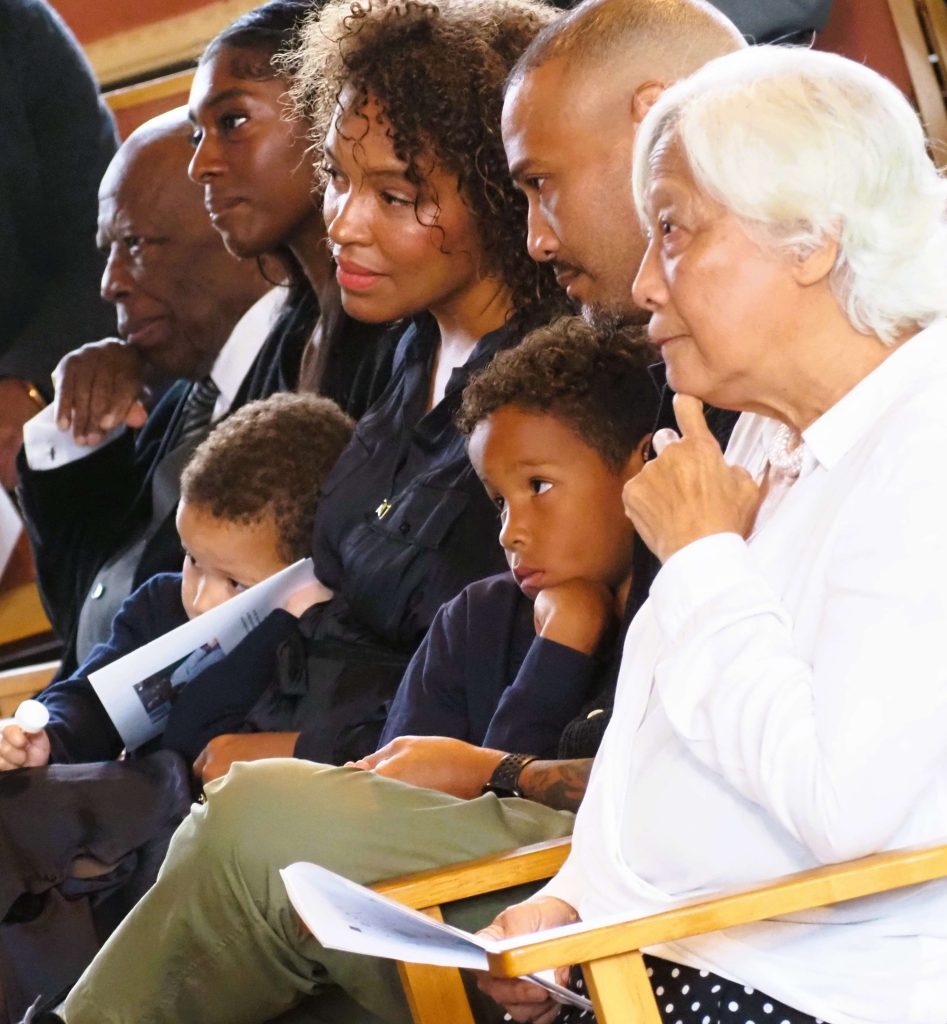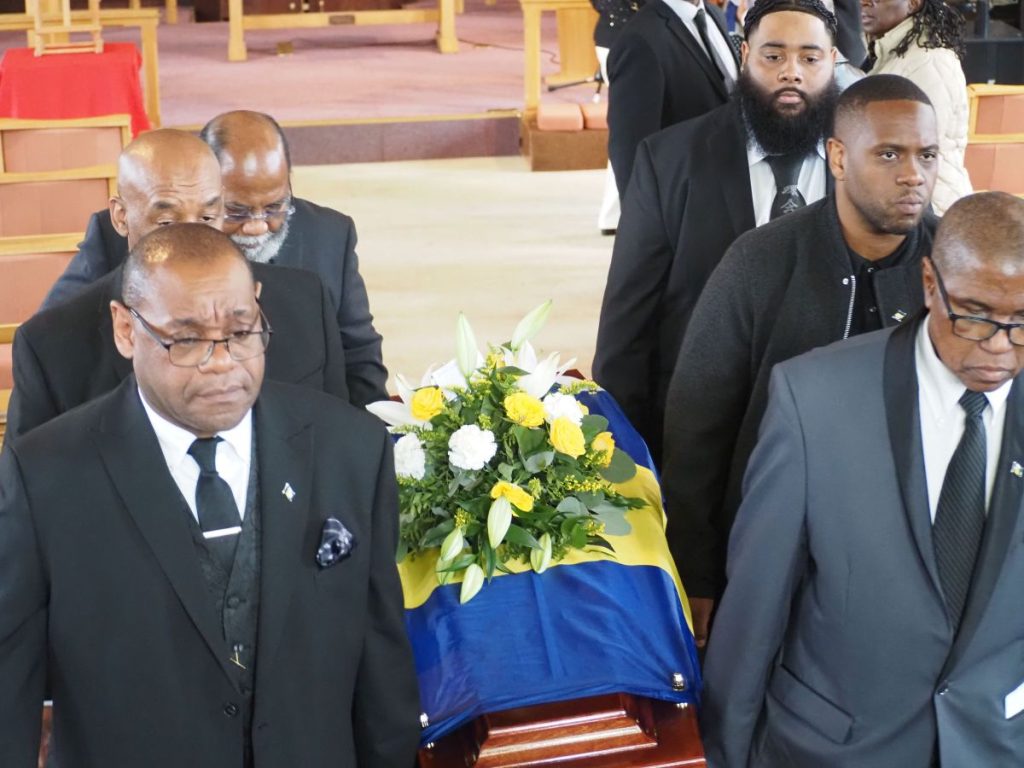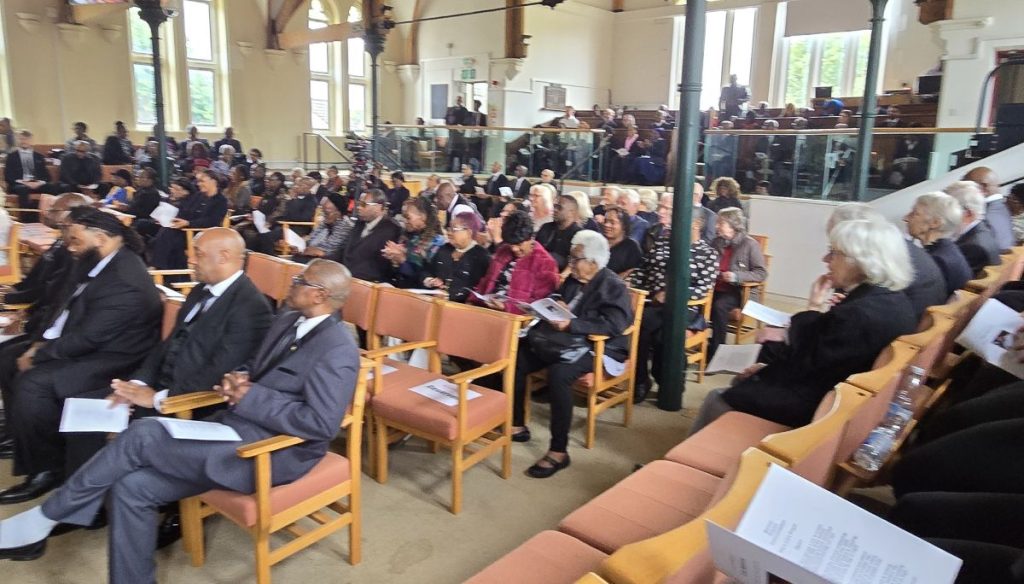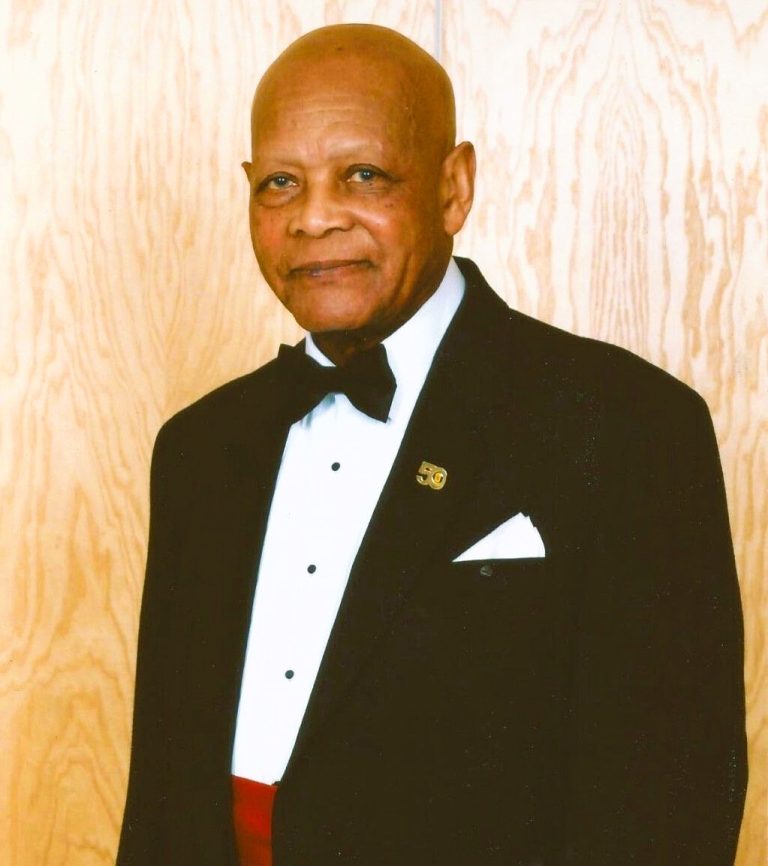The recent death of Ivan Weekes revealed much about a man whose life was very much understated. Only at his funeral at the Methodist Church on Lancaster Road, Ladbroke Grove, London, on 1st October were his achievements revealed to the broader community. Ivan was always impeccably dressed and projected an air of authority. Yet, underneath his serious appearance, he had a quick wit and a sharp tongue.
Born in Barbados on Saturday, 4th October 1930, Ivan Weekes attended St Patrick’s School in the parish of Christ Church. He emigrated to the UK in the mid-fifties via Italy on the vessel Sorrento, which carried many passengers now considered part of the well-known Windrush generation—those who made significant contributions to British society.

He settled in North Kensington with his childhood sweetheart, Eulalie, who had already moved to London and found accommodation in one of the notorious slum landlord Peter Rachman’s properties.
Ivan quickly found work at the John Lyons Ice Cream factory in Park Royal and later became a civil servant, a housing association officer at Paddington Churches, a labourer, a community worker at the Afro-Caribbean Pepper Pot Centre, and an alderman in the City of Westminster.
His wife Eulalie died in 1971, leaving Ivan to raise his two young children, Erskine and Cheryl. He later met his wife, Perlita, and they had a son, Kelvin.

Although raised in the Church of England, his route to Methodism was shaped by the racism he experienced at the local Anglican Church in Notting Hill. He found acceptance in 1961 by joining Notting Hill Methodist Church.
Besides his communal activism, Ivan relaxed in his two large allotments, where he grew an endless supply of potatoes, pumpkins, and French beans. This activity continued into his retirement years. Where this plot of land became a place of solace
In 1983, race relations in the UK were marked by significant issues such as disproportionate detention of ethnic minorities under the Mental Health Act and discrimination in employment. During this time, the recently formed Community and Race Relations Committee of the Methodist Church (CRRC) supported the appointment of a Methodist Secretary for Race and Community.
In 1984, Ivan Weekes was appointed as the first Methodist Secretary for Racial Justice. This role needed skills in fairness, equity, and community engagement. Over the years, he has served in many offices and, from the early ’80s until his retirement in 1995, was the first Black executive secretary of racial justice in the Division of Social Responsibility.
In 1991, Ivan was elected Vice President of the Methodist Conference, the governing body of the Methodist Church that meets annually to discuss matters affecting the life of the Church, the nation and the world. Throughout his career, he collaborated with others to set up practical approaches and solutions. He served as an inspiration, mentor, and role model, advocating for Black leadership and providing clarity, conviction, and insight to his professional endeavours and relationships.
Ivan Weekes was the driving force behind the seminal strategic report of the Methodist Conference (1987) entitled Faithful and Equal, which led the conference to adopt a program to tackle racism and promote racial justice. It encouraged all Black Methodists to offer themselves for all the ministries of the Church; every church council to consider what action it has taken or will take to combat racism.
His work was paying off, and the first meeting of Black Methodist Ministers took place on 29th May 1985. The meeting was convened by Ivan and was held in his office in Westminster Central Hall. Afterwards, the group committed themselves to meet regularly for mutual encouragement and education to play an effective role in the life of the Methodist Church. This commitment led to the formation of The Black Methodist Ministers Group, which evolved into the Belonging Together Ministers Group, aimed at helping the Methodist Church fulfil its mission and ministry through its diverse membership.
On Wesley Day, Sat, 24th May 2025, the group marked his fortieth anniversary and honoured Ivan’s legacy.
On his retirement in 1995, his work had covered a decade of growing racist rhetoric and “riots” across the UK, much of which had arisen from the targeting of Black youths (particularly of Afro-Caribbean backgrounds).
Despite the many challenges he faced, Ivan remained resolute in his commitment to justice and equality. His tireless advocacy helped shift attitudes within the Methodist Church and broader society. Following in the footsteps of many Barbadians who fought injustices in Britain in the 1980s by working in the Race relations industry.



